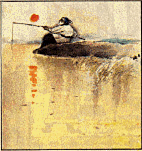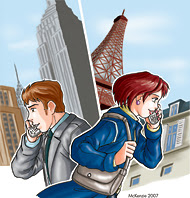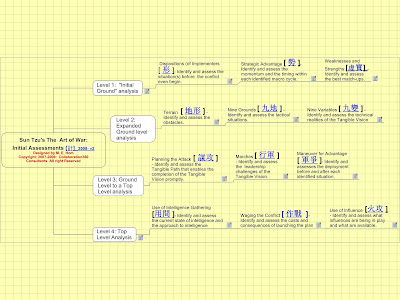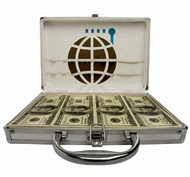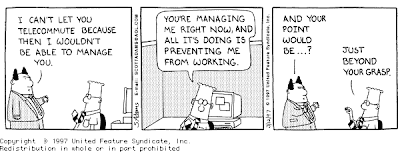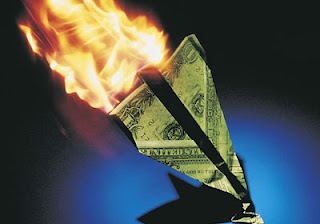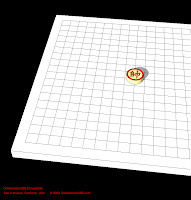
Following are some of those lessons:
1. Emphasizes that a collaborative system of schemes and mismatches prevail over talent
In a grand setting, the origin of the New England Patriots success is due to one thing- a collaboration of many people that are behind closed doors. Whether it is recruiting new players or out-strategizing their opponent during gametime, they usually target their strengths against the opposition weaknesses with strategic timing.
2. Emphasizes detailed preparation from start to finish
Belichick and his staff collaboratively delineated a specific goal and a set of specific objectives. Then they plan on how to achieve it. (The basics of Tangible Vision) ... In terms of organization development, the Patriots has made the most of the salary cap, free agency era. ... Before gametime, Belichick usually prepares his players on many possible scenarios. They always know what are the possible moves and when to adjust strategically. Proper Preparation Prevents Pissed Poor Performance.
3. Understands the cycles relating to one's settings
During gametime, Belichick recognized two things: the current scenario and the next possible event. He also knows when and how to take advantage of a tired opposition. This is how a consummate strategist has the "big picture" view.
In terms of players management, New England Patriots always know when to "retire" their players one season before, then one season later. ...
4. Be professional
When one is a champion, trash-talking is not the norm.
5. Emphasizes loyalty
The Patriots believe in loyalty from start to finish.
6. Recruits personnel who are multi-skilled, smart and move fast
The Patriots have many players who play multi-positions like Troy Brown, Randy Moss, Adalius Thomas, Wes Welker and others. It gives the coaches more strategic options.
7. Success breeds success
New England has a successful record and three Super Bowl . While talented players like Moss, Welker and Thomas always want to join a winner. ... With mountains of successes, Belichick convinces formerly egotistical players put aside their personal ambitions for the greater good of the team.
8. Always be secretive (never trust outsiders)
Outsiders has a way of disrupting team unity. Ask Belichick and Moss about outside distractions.
9. Always learn from the best
"... In addition, Belichick is a devoted student of the game; during the offseason, he has spent significant amounts of time visiting with other programs to learn from their experiences. For example, he has studied the Navy run offense, sought Bill Walsh (in past years) to understand more about the San Francisco 49ers as an organization and the West Coast offense as a system,[14] and spent time with Jimmy Johnson to learn about drafting and contract negotiations.[15] ..."
- http://en.wikipedia.org/wiki/Bill_Belichick
#
Belichick is also a student of Sun Tzu's Art of War. "With genius coach Bill Belichick systemically crafting game plans and victory marches straight from the teachings of Sun Tzu, the Patriots - who scored an NFL-record 589 points and posted the largest point differential (315) in a season - do appear to be one of the greatest NFL teams of all time. That's not hyperbole; that's fact. ..."
- http://www.sfgate.com/cgi-bin/article.cgi?f=/c/a/2008/01/29/SPUDUNPV8.DTL
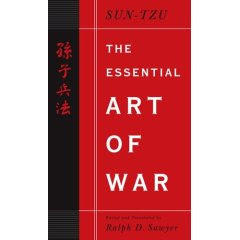
More conceptual details on Point #2 to #8 can be found in Sun Tzu's (Sun zi) Art of War.
# # #
Patriot Way' needs good citizens - even Moss
Nancy Gay, San Francisco Chronicle
Thursday, January 31, 2008
(01-31) 04:00 PST Phoenix --
They're quick to cite the "Patriot Way" in New England as the reason for three Super Bowl championships and six division titles in the 21st century. It's a catchphrase that would seem overly pretentious if it weren't for a trophy case full of hardware to back up the notion.
Then there is the unprecedented 18-0 record that stands to remain unblemished Sunday if the Patriots complete the anticipated season sweep and defeat the New York Giants in Super Bowl XLII.
The textbook Patriots player, as defined by owner Robert Kraft, coach Bill Belichick and vice president of player personnel Scott Pioli, is hard working, dependable, accountable for his actions. He must have good character. You don't see a Jerramy Stevens on the Patriots roster.
There is an occasional blip - safety Rodney Harrison, for example, served an NFL-imposed four-game suspension at the beginning of the season after admitting he had obtained human growth hormone. The safety is among the team's most respected leaders.
Rather than blame the bust on a tainted supplement, a popular line of defense for such embarrassing infractions, Harrison held himself accountable by publicly apologizing for being a poor role model.
During Super Bowl week, he has expanded on his contrition. "My message to young kids basically was, 'Hey, you make a mistake, own up to it, accept your consequences and move forward.' We, as people, have to do that," Harrison said. "I mean, we all have skeletons in our closet. No one's perfect here. The way you make amends is by becoming a better person."
This is the type of player the Patriots covet. They are not perfect. But they try.
Pioli, the media-shy architect of so many of the team's brilliant personnel moves, made himself available the past two days and the question of how New England built an 18-0 team via the Patriot Way was at the forefront.
"We know what we're looking for in terms of, there is a certain type of person that Bill wants to coach, and that wants to be coached by Bill," Pioli said. "Ultimately, it comes down to the players being able to do that.
"Bill is looking for people who are professionals, people who are just like him ... getting people who care about football. When we talk about finding disciplined football players, it has nothing to do with how long their hair is or how much jewelry they're wearing.
"It has everything do with how disciplined they are about their job and being committed. Showing up on time, paying attention, working hard and being accountable to people that you work with."
How does New England get it right every year and other teams - oh, say, the two in the Bay Area - tend to make one expensive mistake after another and fail?
"You know there are a lot of different vehicles to build a team. There is the draft, free agency, it's the waiver system, it's trades," Pioli explained, as if this were really simple stuff. "You try to build a team using all the vehicles available to you."
Here's how he spent the 2007 offseason: After losing the AFC Championship Game to the Colts last January, the Patriots signed top free agents such as linebacker Adalius Thomas, tight end Kyle Brady and wide receiver Donte Stallworth. They swung trades to acquire wide receivers Randy Moss and Wes Welker.
You figure that Welker, a hard worker who evolved from an undrafted Dolphins' free agent into one of the NFL's most versatile receiver/returners, was a no-brainer fit for the Patriot Way.
But Moss? That sullen guy who appeared to mail it in for two seasons with the Raiders?
"We know a lot of people (who) spent time with Randy, we know a lot of people (who) played with Randy, who coached Randy. We know Randy and we were comfortable bringing him here," said Pioli. People in the Raiders organization told him that Moss still had his legs and still could run. "Perception and reality sometimes are two completely different things."
Here in Super Bowl land, several NFL insiders have confirmed that Raiders owner Al Davis has made it known across the league that he believes coach Lane Kiffin forced his hand on that trade, a steal for a fourth-round pick ultimately used on a bench-warming defensive back, John Bowie.
Here is how Pioli describes the transaction, which took place at the conclusion of Day 1 of the draft. And Davis - regardless of how much he might regret dumping Moss - was directly involved.
"It was quick. The conversations with Mr. Davis didn't start taking place until (late) ... because of the time difference. It was late," Pioli recalled. "It was at the end of the first day of the draft. It went late into the night. It went very late (and) early into the (next) morning. We spoke to Mr. Davis and got to the parameters of what we thought (that) the trade would be, but there were other things that we had to discuss.
"Part was getting together with Randy, part was to talk about his contract because he was due to make $9.75 million this year. There were a number of things that had to get done. The process was (that) again we spoke to the Raiders. Randy was, I believe, somewhere in Texas. He got on a plane, flew up in the middle of the night. (He) got in early in the morning, took a physical and met with Bill and I. (And) then we consummated the trade."
Pioli, Belichick and Kraft convinced Moss to play for them for $2.5 million in base salary, a $500,000 signing bonus and promises of other riches (about $2 million more) if he made the Pro Bowl and the Pats made the postseason.
No problem.
Moss, who caught an NFL-record 23 touchdown passes, is now celebrated for being the perfect teammate and model employee.
"In his case," Kraft said, "he came to us and wanted to be part of a team that could win and he said to me, 'Mr. Kraft, I have made a lot of money, more money probably than I need. This is about winning.' "
Moss made $15 million in two seasons in Oakland, but apparently it wasn't all about the cash. After getting hurt in the fifth game of the 2005 season and then rotting from lack of use under the bed-and-breakfast offense designed by former offensive coordinator Tom Walsh and head coach Art Shell, Moss' will was destroyed. Ask Jerry Porter about that.
On Wednesday, Moss said it's his hope that he and the Pats can come up with a deal once his one-year contract expires Feb. 29.
"Hopefully, we can work something out after this season is over. The sky is the limit," Moss said. "I really don't know if I'm going to be a New England Patriot, but to answer your question, I would love to retire a Patriot, yes."
Said Kraft: "He's lived up to every commitment that he has made, and he also treats people very well in the organization. Everything that I've seen, he has conducted himself very well."
It's the Patriot Way. Randy Moss bought into it. Thrived under it.
The rest of the NFL, chasing a franchise that has a lock on consistency this decade, can only hope to do the same.
E-mail Nancy Gay at ngay@sfchronicle.com.
http://sfgate.com/cgi-bin/article.cgi?f=/c/a/2008/01/31/SPPVUOV6R.DTL
This article appeared on page D - 1 of the San Francisco Chronicle
More profile information on Bill Belichek
http://fifthdown.blogs.nytimes.com/2008/01/24/who-is-bill-belichick/
# # #
Does your planning process encompasses all of these specifics? If not, you need Compass AE.
If you are interested in learning more about Compass AE, please e-mail us at contactus [at]collaboration360[dott] com. [ Replace [at] with "@" and [dot] with "." ]
fyi- We also have an abridged version of the Tangible Vision that describes "The Patriot Way".
